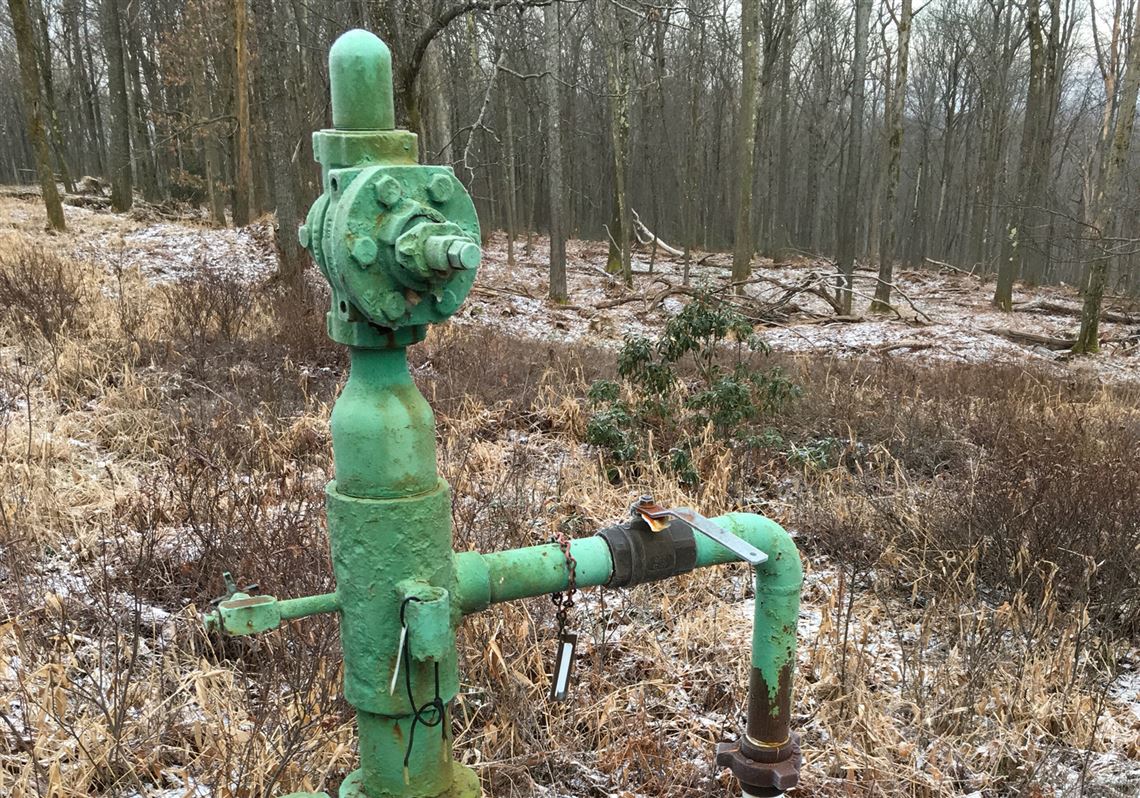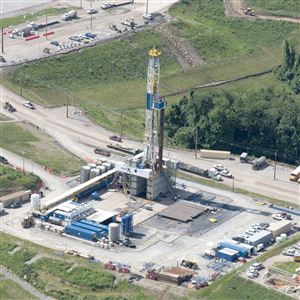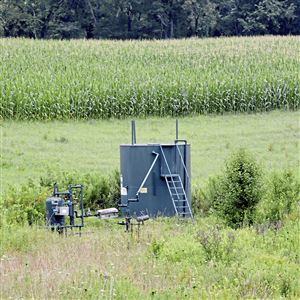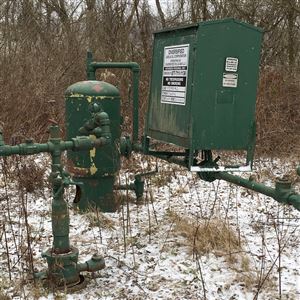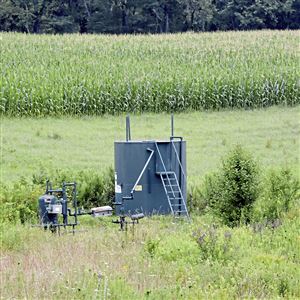CNX Gas Co. reached an agreement with state environmental regulators to plug 148 non-producing coal bed methane and natural gas wells over the next seven years.
The majority of these are older, conventional vertical wells in Greene County, though there are some in Allegheny, Washington and Westmoreland counties, including about half a dozen on the property of the Municipal Authority of Westmoreland County.
The state Department of Environmental Protection originally ordered CNX to plug 327 wells that did not produce gas in 2017. The order, issued in July 2018, deemed these wells to be abandoned.
CNX Gas, which is a subsidiary of Canonsburg-based CNX Resources Corp., replied that at least 190 of those didn’t even belong to the company anymore — they had been sold to a subsidiary of Alabama-based consolidator Diversified Gas & Oil. CNX had applied to the DEP to transfer the permits for those 190 wells to their new owners, but the DEP wouldn’t grant those transfers with the plugging liabilities up in the air.
The DEP’s original order required CNX to plug at least 120 wells a year.
In an appeal to the Environmental Hearing Board, CNX claimed it would be “impossible” because of the “simple fact that industry resources and competent well plugging vendors are limited.”
They were about to get even more limited, CNX warned in August of last year, because of “the department's unnecessarily aggressive and recent pursuit of operators in the industry in connection with wells that have been non-producing for years.”
The DEP had indeed launched a more aggressive effort to ensure that old wells are properly plugged, spurred in part by Diversified’s accumulation of tens of thousands of older wells in the state.
In March, the DEP reached an agreement with Diversified that commits the company to dealing with 1,400 such wells over the next 15 years.
Pennsylvania already has at least 200,000 abandoned, ownerless wells, according to DEP estimates. Many were drilled before 1984, when companies were first required to post bonds for well plugging. Even after that, however, the amounts that operators are supposed to pay — they are now $2,500 for each conventional well or $25,000 for all wells owned by a single operator — haven’t matched the actual costs of well plugging, which can climb into six digits for particularly problematic plugging jobs.
“Unfortunately, bonding — in particular, blanket bonding — amounts prescribed under state law are woefully inadequate to actually plug an abandoned oil or gas well,” said DEP Secretary Patrick McDonnell in a statement about the CNX agreement. “If a conventional well owner walks away, they’ve put up just pennies on the dollar and the commonwealth is forced to cover the rest.”
The CNX agreement, made public on Friday, significantly lowers the DEP’s original ask but secures a more robust performance bond.
CNX agreed to plug at least five wells this year and at least 20 per year starting in 2020 until all the 148 wells are dealt with.
The company also agreed to post a bond of $1.48 million, which would guarantee that $10,000 would be available to plug each well in the event CNX doesn’t follow through.
Anya Litvak: alitvak@post-gazette.com or 412-263-1455.
First Published: October 11, 2019, 9:40 p.m.






